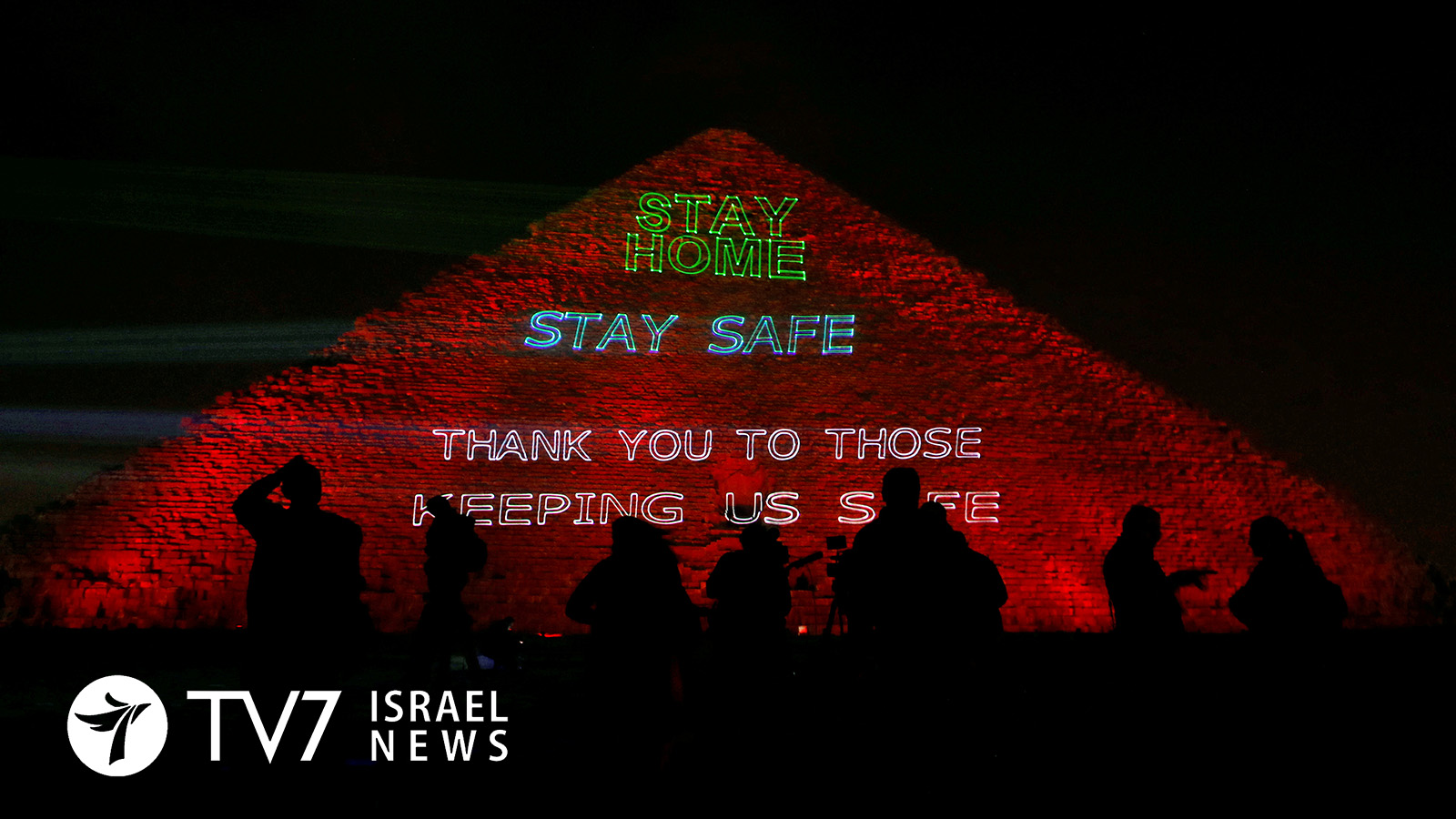The largest of Egyptian pyramid of Khufu at the Giza complex on the outskirts of Cairo has been illuminated with text encouraging people to stay home, as government efforts to curb the spread of coronavirus disease are ramped up.
The World Health Organization (WHO) has praised Egypt’s efforts to combat the coronavirus but also says improvements are needed.
The first coronavirus case in the Arab Republic was reported on 14 February. Since that time, the number of confirmed cases has steadily climbed to risen to 779, including 52 deaths.
Cairo has ratcheted up the battle against the disease, including allocation of 1 billion Egyptian pounds ($64 million) in additional funding for its health services. Manufacturers have also been ordered to channel medical protective equipment to public hospitals. But there are rising concerns the public health sector may not be able to cope with a sudden escalation of infection in the country of 100 million – where population density could foster a surge of the disease.
Experts say that many Egyptian medical facilities are dependent on donations for some services and supplies after decades of underinvestment by the government. According to the World Bank, in recent years more than 50% of patients have sought private medical care due to the poor quality in primary healthcare facilities and public hospitals.
Personnel at Cairo’s Boulaq public hospital told Reuters that the first major renovation for decades only began a few months ago after a social media campaign. “Things are not good. We feel the pressure increasing every day,” said one doctor, who asked not to be named. “We are suffering from years of accumulating (problems). We have shortages of medical equipment, devices and supply.”
Egypt had allocated 125 billion pounds from its 1.6 trillion pound 2019/20 budget to the health sector. The state Al-Ahram newspaper reported that 150 million Egyptian pounds had been assigned for renovations at Boulaq.
Since the start of the pandemic, Egypt has increased its testing centers from one to 50, and there are reportedly eight isolation and treatment hospitals. Authorities say they are able to contain the virus for now through testing, tracing, isolation and treatment; along with restrictive measures including a night-time curfew and the closure of mosques, schools and tourist sites.
The Middle East Monitor reported that Egyptian Health Minister Hala Zayed claimed on Monday that she expects the spread of the coronavirus worldwide to be contained within three weeks.
Health policy expert at the Egyptian Initiative for Personal Rights, Alaa Ghannam told Reuters, however, that “All health systems in the world become fragile if this virus spreads widely, at the same time. The spread could happen over stages. But if it happens at once, then that puts any health system at risk. Nobody will be able to handle it. The only solution is therefore to decrease the period in which the virus spreads, by asking people to stay at home. No hospital will be able to (deal with a sudden increase). How many beds does Egypt have? 150,000 beds.”
“If we’re very lucky we can shut down transmission like they did in China. If we’re not so lucky we can delay at least the stage three or community-wide transmission,” WHO official Yvan Hutin said at a press briefing on Monday. “If we’re not lucky or if we don’t work hard enough then it could come faster than we can cope.”
Jean Jabbour, head of the WHO’s Egypt office, said the government’s response had so far been prompt. There are 2,000 beds allocated for COVID-19 treatment, half of which are in intensive care units and 600 with ventilators, while 400,000 test kits have been delivered, his office told Reuters.
Jabbour stressed that the rate of a surge in cases is critical. “If I were to reach let’s say 1,000 cases in two days, of course it’s a big load on the government and it won’t be easy to follow, monitor, or to trace. But if you reach 1,000 cases in 12 days, you will see the same trend done by the government and able to trace very well the context and identify the source and take the appropriate containment measures.”
